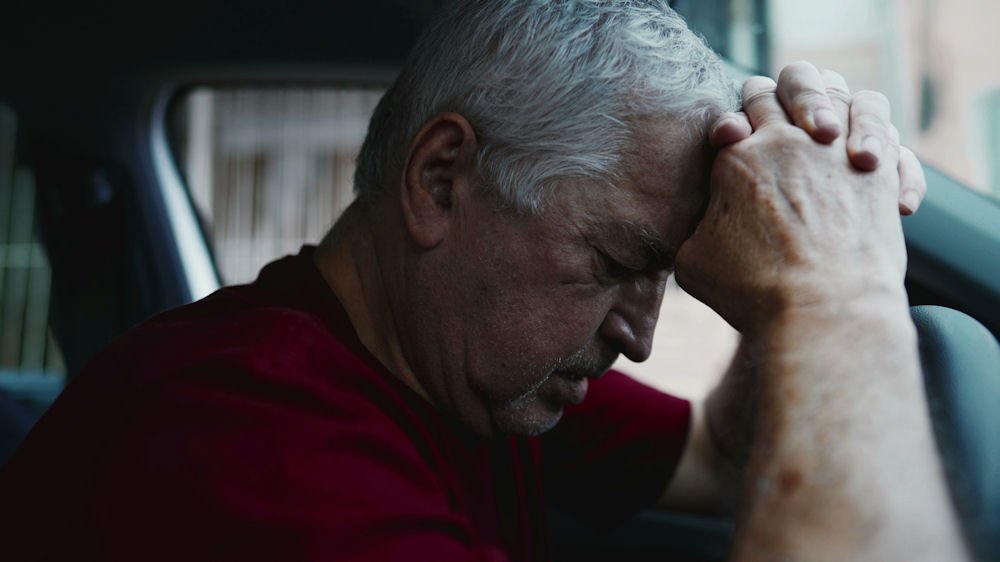 Even though guilt and shame overlap, they are different feelings with separate effects on your health and well-being. Each feeling directly adds to addiction and other mental health disorders. By identifying these feelings during recovery and taking steps to reduce their effects, you can reduce the risks associated with guilt and shame. This lowers your risk of relapse.
At Golden Gate Recovery in Marin County, California, our rehab facility provides clients with the tools necessary to cope with their conditions and the feelings associated with stigma such as guilt and shame.
Even though guilt and shame overlap, they are different feelings with separate effects on your health and well-being. Each feeling directly adds to addiction and other mental health disorders. By identifying these feelings during recovery and taking steps to reduce their effects, you can reduce the risks associated with guilt and shame. This lowers your risk of relapse.
At Golden Gate Recovery in Marin County, California, our rehab facility provides clients with the tools necessary to cope with their conditions and the feelings associated with stigma such as guilt and shame.
Guilt is the painful admission that you have done something wrong, but that bad behavior doesn’t represent who you are as a person. It’s about the specific event, not about yourself. Individuals feeling guilt can still recognize their positive qualities and see themselves in a good light. You can think of guilt as a helpful emotion because it helps you behave in agreement with your values and moral code.
Shame is the unwanted sensation you did something wrong, making you a bad person. Shame is about you. A person feeling shame may not be able to recognize their positive qualities and may view themselves as flawed, dishonorable, or dysfunctional. Shame is an unhelpful emotion, especially if you experience it for a long time. If you see yourself as a bad person, it’s hard to see a way out of your situation or change your behavior. This makes you more likely to repeat bad behavior and more likely to harm yourself.
Research has shown that shame-proneness (the inclination to feel bad about yourself) can relate to various life problems. But, guilt-proneness (the inclination to feel bad about a specific behavior) is more likely to be adjustable to the situation. Recent analyses tried to clarify the relationship of guilt-proneness and shame-proneness to substance use disorders (SUDs).
Across research samples, shame-proneness was positively related to substance use problems, while guilt-proneness had an inverse relationship (unrelated). These results suggest that guilt and shame should be considered separately in the prevention of SUDs.
Feelings of shame and guilt are normal reactions but they can be difficult to cope with and can lead to feeling overwhelmed and hopeless. This is called the “shame spiral.”
Knowing the difference between guilt and shame helps you recognize the emotion you’re experiencing and what you need to do to address the problem. Guilt can heal you and those feelings of guilt are a sign of a healthy recovery. Guilt supports healing by allowing empowerment and ownership. It is linked to your behaviors and they can be changed.
However, shame is like poison to recovery. Shame is truly one of your worst enemies. Shame leads to the belief that there is something fundamentally flawed about you and that you’re powerless to change. Putting an end to the stigma and shame of addiction is basic to recovery.

People with continuous, deeply felt shame of themselves tend to be isolated, with closely held feelings of being unlovable and unworthy. In turn, this is linked to depression and the use of drugs and alcohol as a form of self-medication.
In addition, the use of alcohol and drugs causes more feelings of shame. It also lowers self-esteem and adds to the constant cycle of viewing yourself as unable to cope and feeling inferior. This shame spiral can only be ended by a significant intervention. Individuals who feel unworthy of help or even to ask for help don’t usually seek professional treatment on their own. Often, they’ll get help for addiction when family or friends motivate them.
Several studies have shown that analyzing emotional problems in substance abusers is important because people in recovery experience different levels of shame and guilt than the general population.
Literature has suggested that the emotions people feel after their bad behavior are related to outcomes–especially that feelings of guilt can play a part in changing behavior constructively and feelings of shame can harm such behavior development.
However, in the context of substance abuse, these two emotions often occur simultaneously. The actions you might be guilty of do involve the self. And since they involve the self they also involve shame, particularly if the guilt is ongoing. The weight of all that guilt can lead you to want to escape by using substances. Guilt appears to be a common struggle for individuals in recovery.
Self-harm is a major public health issue associated with the risk of suicide and substantial psychological pain. Guilt and shame may be important emotions in self-harm. A “guilt complex” refers to the ongoing belief that you did something wrong or will do something wrong and can lead to feelings of:
Feelings of shame are another common result of a guilt complex. Due to the shame, a person may be isolated from other people, causing a detrimental impact on relationships and making it hard to find strong social support.

Everybody messes up from time to time and frequently, with those mistakes come feelings of guilt, shame, self-condemnation, and humiliation. Fortunately, if you learn how to forgive yourself and let go of the guilt, you can get past these negative effects and live better. Here are some tips for lightening your load:
To discuss the connection between addiction and shame, it’s important to start working with an experienced psychotherapist or recovery coach for either individual or group therapy. Learning to view your mistakes as behaviors, not a reflection of your self-worth is necessary to break the cycle.
Golden Gate Recovery, in Martin County, CA, is an accredited drug and alcohol rehab for men. We have certified addiction specialists experienced in treating individuals with substance use disorder and mental health issues, which often go hand in hand. Our therapists are well-versed in approaches that will help you learn to see mistakes as behaviors and not as a representation of your self-worth. Additionally, being a single-gender rehab promotes more open and relaxed communication among the people in treatment.
Furthermore, breaking the cycle of guilt and shame in recovery and reconnecting with family, friends, and coworkers is essential for healing. Learning to accept that these people love you and that you’re part of a loving network can be hard, but is possible through therapy.
At Golden Gate Recovery in Marin County, CA, we provide clients with several levels of care. Based on specific needs and circumstances, we create a comprehensive treatment program. Our team is prepared to support you through your recovery from outpatient rehab to sober living homes after your formal treatment is completed. You will never be pushed forward or held back if it’s not right for you.
So now you have to be honest with yourself. Instead of allowing the guilt, shame, and denial to grow and fester, it’s time to make that most important step. If you or a loved one is struggling with addiction, it’s okay to reach out for help. You have questions and we are happy to provide the answers. Contact us today to set up an appointment or just talk.
Get confidential help! Call Us Now for:

Golden Gate Recovery is a grass roots organization created by men in long term recovery with a simple mission: to continue strengthening our therapeutic and peer led community toward the goal of long term recovery for each client.